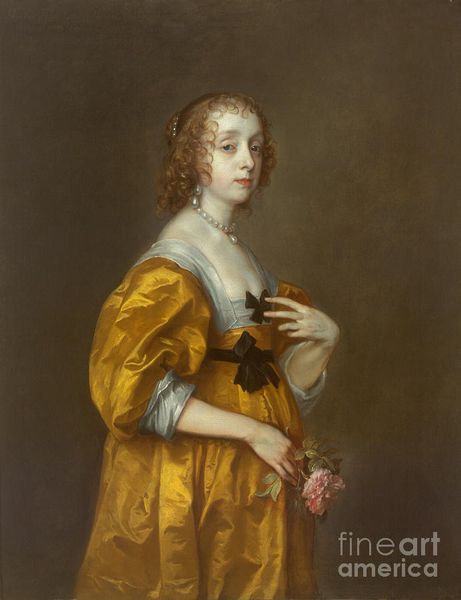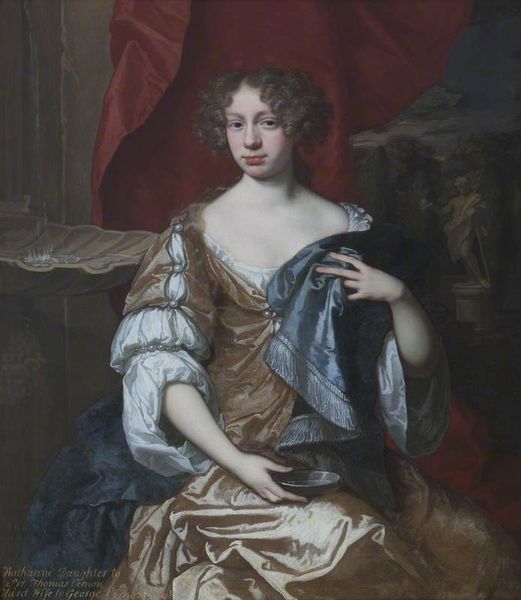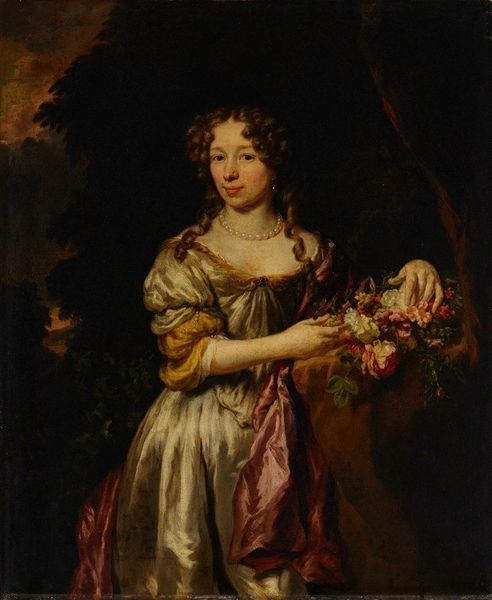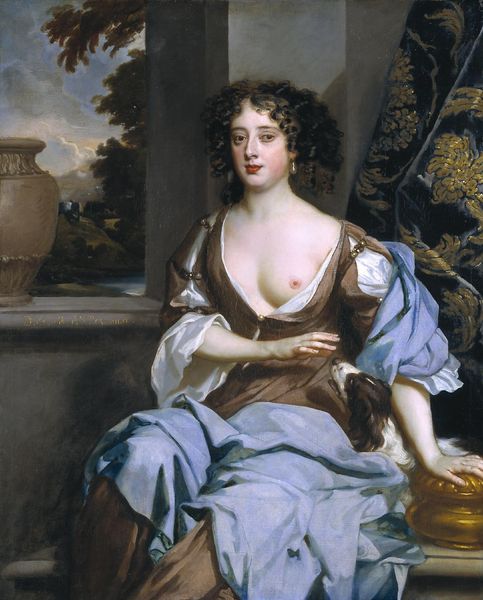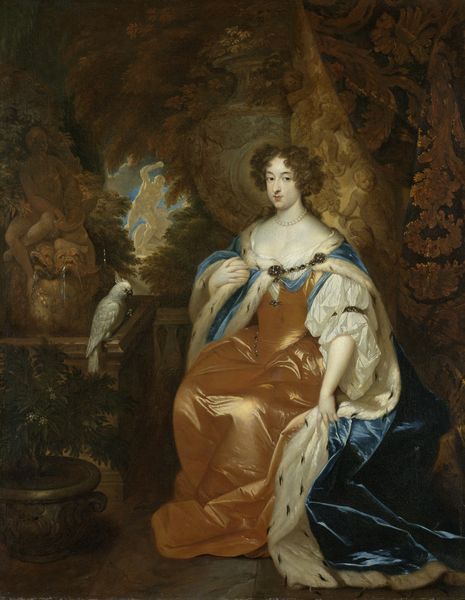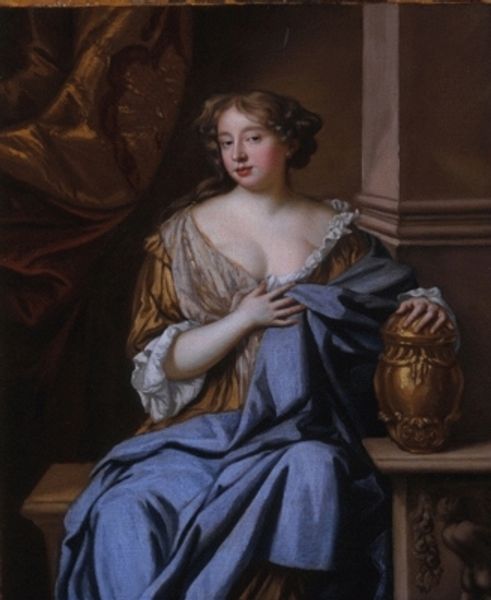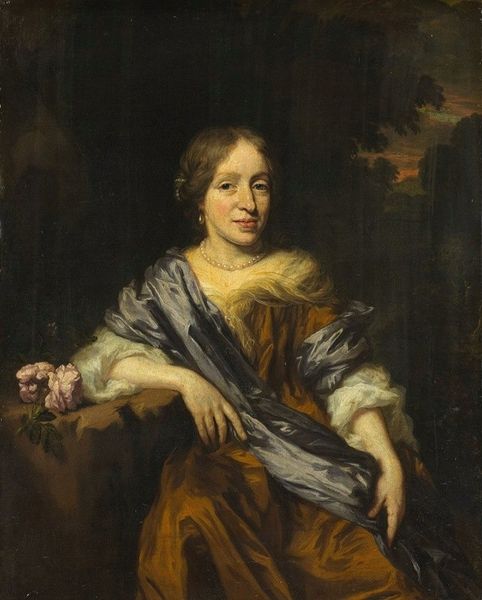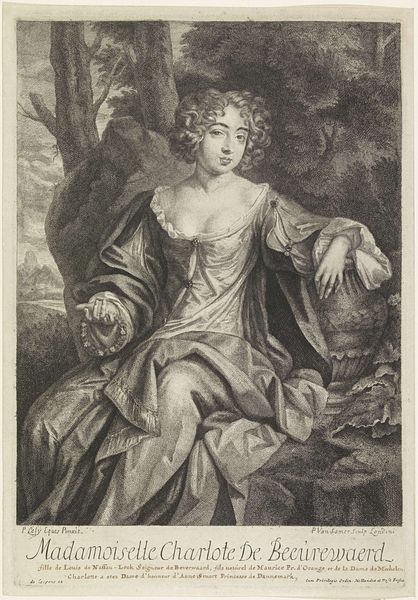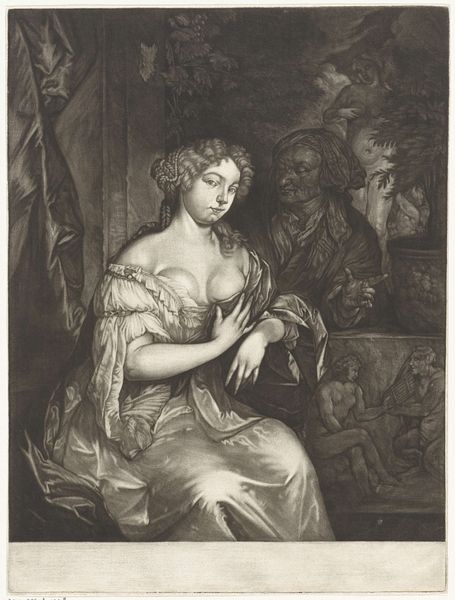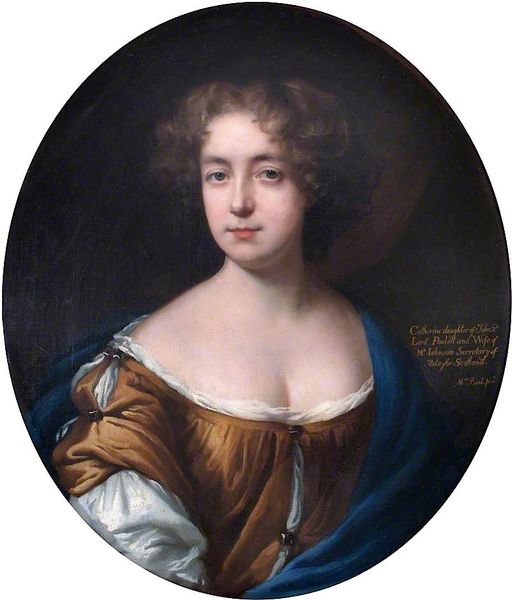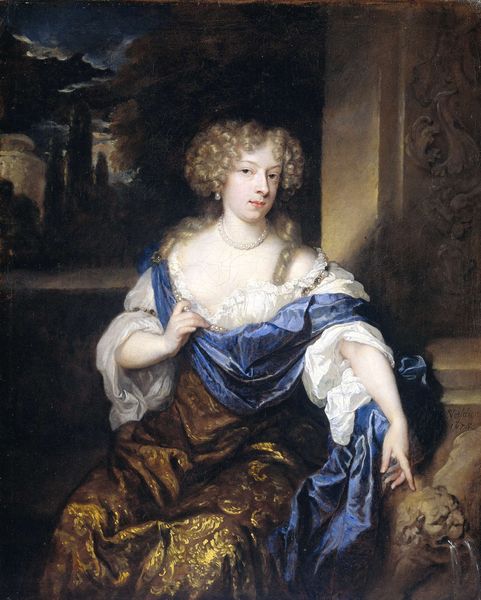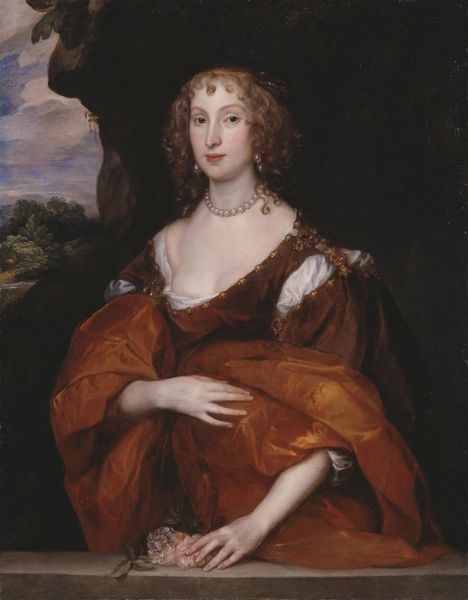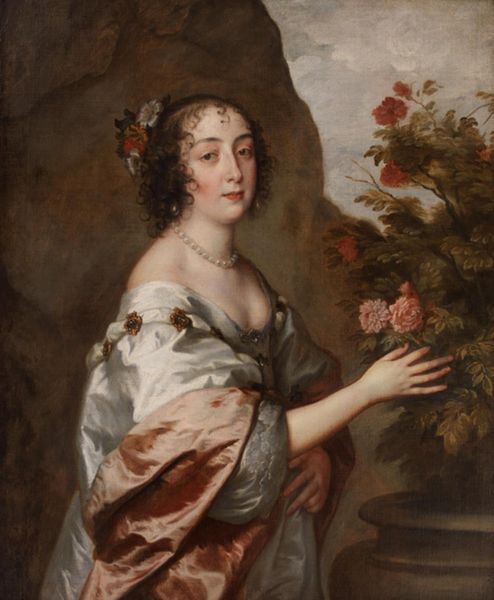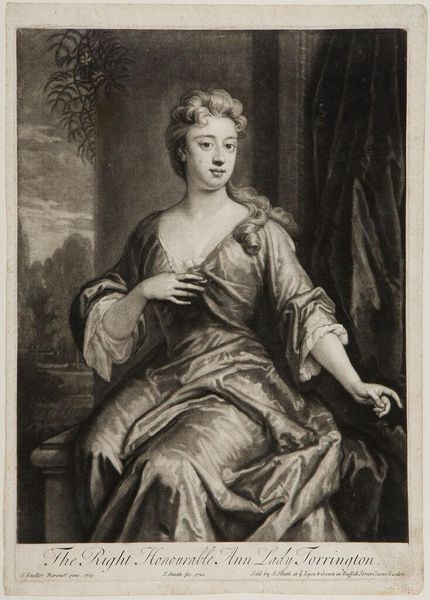
Dimensions: support: 1234 x 1000 mm
Copyright: CC-BY-NC-ND 4.0 DEED, Photo: Tate
Curator: Sir Peter Lely, a leading portraitist of his era, painted this large-scale portrait of Elizabeth, Countess of Kildare. Editor: The portrait immediately strikes me with its delicate color palette and the subject's rather languid pose. Curator: Indeed. As a woman of nobility, she was subject to social expectations around marriage and succession, making portraits like these vital for solidifying status. Editor: I see the subtle play of light across the silk gown, creating these wonderful textures. It is interesting how Lely used color to create a sense of movement. Curator: Absolutely, and the symbolic context is vital, too. The choice of flora held in her hands may allude to fertility, or maybe point to the ephemeral nature of beauty and wealth. Editor: Lely’s mastery of line and form really guides the eye. It's interesting to consider how these formal elements might reinforce or undermine the subject’s social standing. Curator: Considering this work, I'm reminded how portraiture blends personal narrative with powerful social forces. Editor: I'm struck by how Lely combined technical skill with compositional grace to make a really compelling image.
Comments
tate 10 months ago
⋮
http://www.tate.org.uk/art/artworks/lely-elizabeth-countess-of-kildare-t00070
Join the conversation
Join millions of artists and users on Artera today and experience the ultimate creative platform.
tate 10 months ago
⋮
Elizabeth Jones, eldest daughter of the 1st Earl of Ranelagh, was one of the great beauties of the Restoration court. The orange blossom that she holds, and the cupids on the pot to the left, may refer to her readiness to marry. However, in the late 1670s, when it is thought this painting was made, she was rumoured to be mistress to Charles II. She was not to marry the Earl of Kildare until 1684. Citrus fruits were a rare and expensive food, the plants cultivated by only the wealthiest households. Gallery label, February 2016
